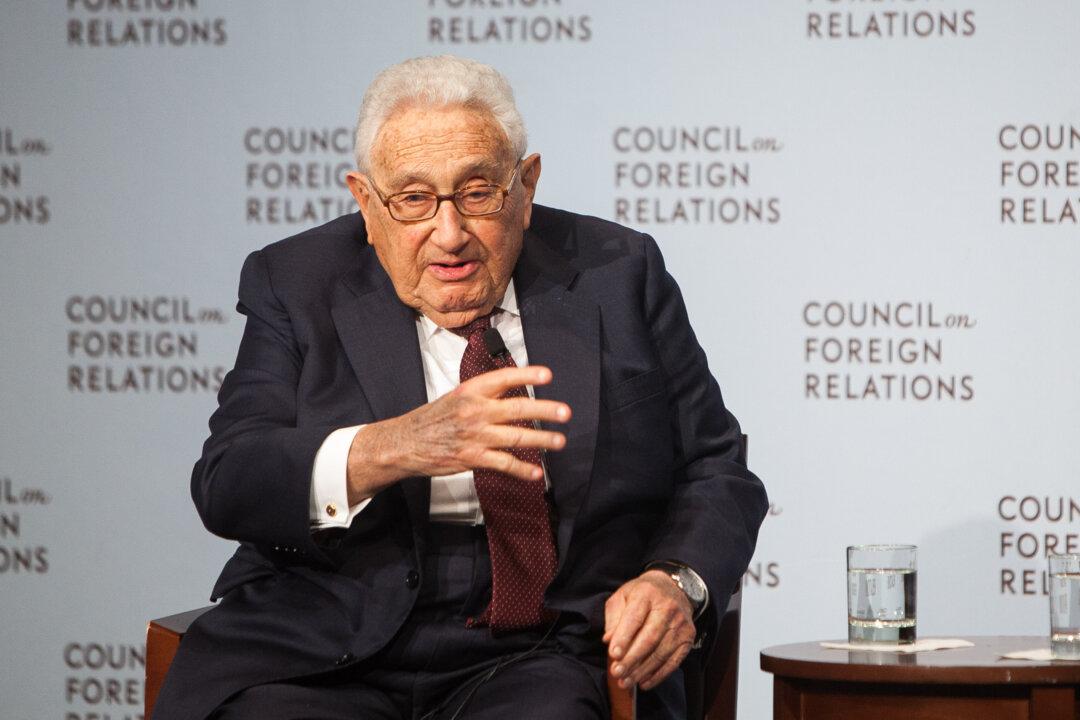NEW YORK—It was an end of an era. More than half a million people protesting on Berlin’s Alexanderplatz on Nov. 4, 1989, heralded the unbelievable—the communist bloc of Central and Eastern Europe was going to fall.
But even then most couldn’t envision what followed. Within two years the Soviet Union disintegrated. The Cold War was over.
Or was it?
Such was a question asked to Henry Kissinger, former Secretary of State and National Security Advisor under presidents Nixon and Ford and one of the key American diplomats of the Cold War era.
In light of the crisis in the Ukraine and even strained relations with China, the idea of the Cold War never ceasing to exist tempted a number of scholars, journalists, and stakeholders at a Tuesday afternoon symposium set up by the Council on Foreign Relations.
But Kissinger, the last speaker of the event, wasn’t prone to jump the gun on the issue.
He backed Ukraine’s right of sovereignty, violated by Putin’s annex of Crimea. Yet he also said the West should have considered strategic implications that led to the crisis. Even if Europe and the United States considered the Cold War over, Russia may have kept reservations.
Kissinger acknowledged he didn’t foresee the Soviet Union’s collapse. When George W. H. Bush took the Oval Office in 1989, Kissinger told him to look out for satellite communist regimes in Eastern Europe to fall out of Soviet’s influence. Fall of the whole bloc was beyond him at the time.
However, he saw hints of Russian leaders feeling the unworkability of their system. During his dealings with Russian communist leader Leonid Brezhnev, he felt Brezhnev could see the Soviet Union was in trouble—despite having “not the most penetrating mind,” Kissinger quipped.
On the other hand, Gorbachev, the Soviet leader credited with starting the fall of the communist bloc, seemed more misguided.
“I liked Gorbachev as a person,” Kissinger said. But he noted Gorbachev couldn’t see the end either, still trying to save the communist regime, while unintentionally dismantling it.
“We should honor him for his consequences,” Kissinger said. “But we were lucky.”





